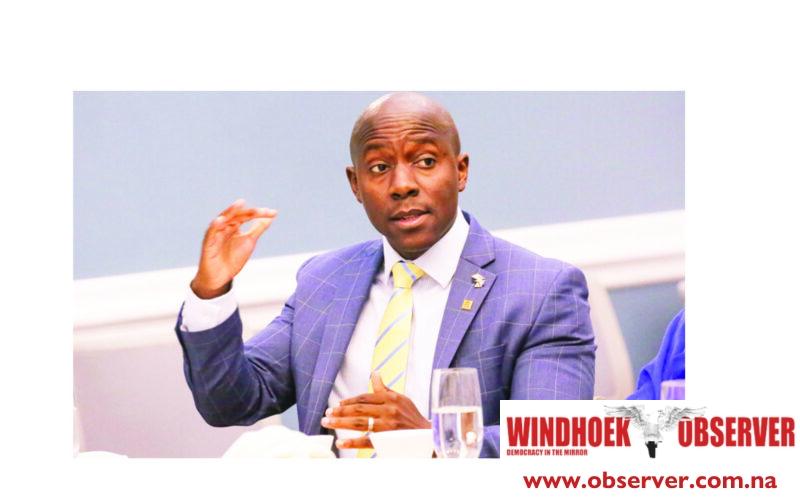Renthia Kaimbi
Former head of the Namibia Green Hydrogen Programme (NGH2P), James Mnyupe, has told the government that he is open to working with it whenever needed.
The remarks were made in his resignation letter to deputy prime minister Natangue Ithete, seen by the Windhoek Observer.
Mnyupe said he has stepped down as head of the programme, effective on 30 September 2025.
However, a press statement released on Thursday morning by NGH2P stated that his resignation will take effect on 1 November 2025.
“I remain at your disposal to assist the Namibian government in advancing its developmental agenda in any way,” he said in the letter.
He had been appointed by former president Hage Geingob as the country’s first green hydrogen commissioner in August 2021.
He later became the head of NGH2P. The green hydrogen project had been Geingob’s brainchild, first announced during the high-level segment of COP26 in Glasgow in 2021.
In May, Mnyupe left his role as economic presidential advisor after five years. He had first been appointed in 2020 during Geingob’s term and had stayed on for a month for transition purposes.
In his letter, Mnyupe nominated Joseph Mukendwa, the current head of planning, policy and strategy, to serve as interim head of the programme until the government appoints a successor.
“In the avoidance of any doubt, I have full confidence in Mr Mukendwa’s ability to lead the programme,” he stated.
Where to next?
Mnyupe said he will join Thyssenkrupp Uhde as a senior vice president for sub-Saharan Africa from 1 November 2025.
Thyssenkrupp Uhde is globally known for planning, building, and servicing chemical plants and is regarded as one of the world’s leading full-service providers.
Mnyupe confirmed that his new role will be continental in scope and anchored in Namibia, with plans to establish the company’s headquarters locally.
“My intention is to stay involved in the sector and take on a continental role, with headquarters to be established right here in Namibia,” he wrote.
Mnyupe expressed gratitude for his five-year tenure, which began in September 2020.
“The journey I have walked since September 2020 could not have been possible without the full and unequivocal support of the government of Namibia. I cannot thank enough all of my principals and colleagues for helping Namibia establish itself on the global map for innovative new approaches to incubating new industrial clusters,” he told the Windhoek Observer.
He said his next ambition is “to contribute to building the very energy platforms we have envisioned together in government over the past five years.”
He revealed his intention to join the Namibia Green Hydrogen Association as a corporate member to help realise the sector’s goals alongside the government.
Mnyupe said he had also shared his resignation with the director of the National Planning Commission (NPC) and the office of the President and had briefed both offices on his future intentions.
He rejected reports of a lack of political support that surrounded his resignation.
Last week, reports indicated that he had stepped down because of a lack of political support.
Previously, the Windhoek Observer reported that his resignation from the programme reignited doubts about the future of the project.
Corporate governance expert Johan Coetzee stated that Mnyupe’s departure could negatively affect Namibia’s international marketing of the initiative.
Meanwhile, economist Joseph Sheehama told the Windhoek Observer that the resignation could unsettle investors if not managed well.
Namibia hopes to industrialise and create jobs to ease the unemployment rate of about 37%.
Several energy projects have been developed, including the Hyphen project in the Tsau/Khaeb National Park.
From 2028, the country expects to produce one million tonnes of green ammonia each year, mainly for export to Europe and Asia.
The Green Industrialisation Blueprint projected that the strategy could create up to 250 000 jobs, with 185 000 direct jobs in construction and operations and another 70 000 in supporting industries.
In July, the sector had already attracted investments worth N$2 billion since its inception.




